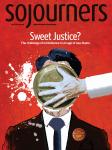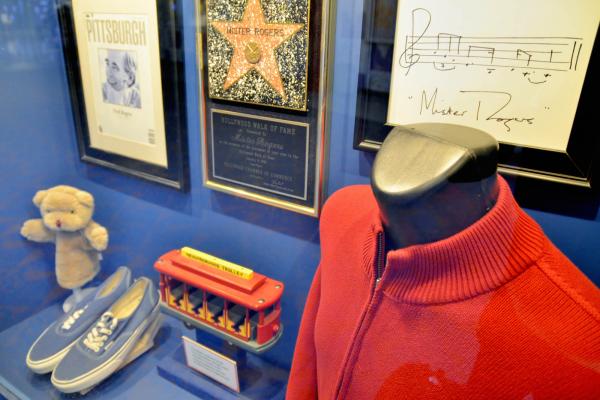THE NEW DOCUMENTARY about the life of beloved children’s television host Fred Rogers, Won’t You Be My Neighbor?, is not merely a nostalgia trip. It stirs more than fond memories: a collective hope that we might discover our kinder selves. Fred Rogers made kindness look easy.
Some folks are skeptical—they remember Mister Rogers as nice, but not brilliant, sweet, but not powerful. Directed by Morgan Neville, Won’t You Be My Neighbor? reveals Fred Rogers as an activist for the common good—a singular figure who cared enough about people to give them what they needed, even if they didn’t know to want it. Footage from 1969 of Rogers testifying to a U.S. Senate subcommittee poised to reduce public television funding—melting the heart of a previously resistant senator—isn’t just a heartstring-pulling moment of grace but shows how speaking truth to the powers can sometimes convert them.
And more, the racial integration of Mister Rogers’ Neighborhood wasn’t an accident but an outgrowth of Rogers’ own evolving commitments to a rainbow world. There’s an act of service in Won’t You Be My Neighbor? that evokes a ritual of life-expanding religion that is more notable because it is rarely practiced: the washing of feet.
Then there’s the moment when Fred Rogers shows his anger toward the systems that would treat children as consumers, selling them toxins. I know what children need, he says. They need to know they are loved just as they are. They need protection, not from pain but from those who would market it. They need mentors who will help them discover their purpose for the common good. And they need adults who will listen, not only so the children can learn but so that those of us who fear we may have left the wonder of childlikeness behind (or never had it in the first place) can rediscover what it is to be loved, to love, and to be good.
Some may say, “Blessed are the meek, but the meek never won any wars, or grew any economies, or captured the most Twitter followers.” But I think we’ve got “meek” all wrong—perhaps to be truly meek means to be capable of force but to choose not to use it unless that would do more harm. Fred Rogers wasn’t naive—he was well aware of the world’s suffering (to use a puppet to help children deal with the assassination of Bobby Kennedy is not to hide from reality). But he also knew that the way to peace with others requires us to disarm our self-hatred.

Got something to say about what you're reading? We value your feedback!

